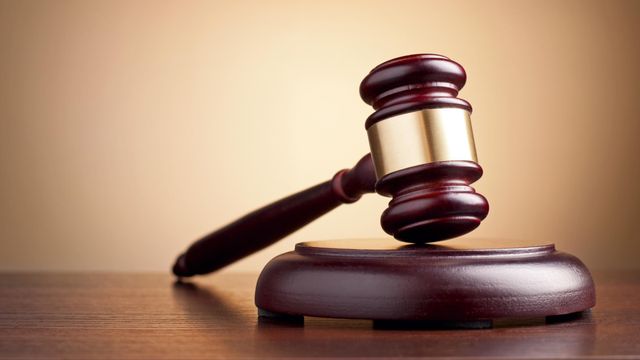NC Supreme Court weighs forced recusal as voter ID case looms
the decision could impact frequent lawsuits over laws passed by the state legislature.
Posted — UpdatedThe decision would impact not just run-of-the-mill cases but some of the most politically charged lawsuits that come before the court: Those that decide the constitutionality of laws passed by North Carolina's General Assembly.
"This is huge," former state Supreme Court Justice Barbara Jackson said. "It’s a very serious issue.”
The issue is wrapped up in a case before the Supreme Court that targets a pair of constitutional amendments North Carolina voters approved in 2018. One requires photo identification for voters at the polls, though it's on hold while this and two other lawsuits targeting it are decided. The other lowered the constitution's cap on the state income tax rate.
Both amendments passed by comfortable margins, but the NAACP argues they never should have been on the ballot because the Republican-controlled legislature that put them there was elected from districts declared unconstitutional by the courts. An illegal General Assembly, the case argues, shouldn't get to amend the state constitution.
This "usurper" argument passed muster with Superior Court Judge Bryan Collins in early 2019, but the case is on appeal at the Supreme Court. The question now is whether Justice Tamara Barringer, who was a state senator when the General Assembly approved the two amendments, and Justice Phil Berger Jr., whose father is a named defendant in the case because he leads the Senate Republican majority, should be on the panel hearing the case.
The NAACP and its legal team asked the full court to recuse both justices after getting no indication in the lead-up to trial that they'd recuse themselves. In September, the court asked the NAACP and the lawmakers they're suing to file legal briefs outlining the court's powers and options on recusal. Those briefs were filed this week.
The NAACP argues recusal should be decided by the entire court. It's also calling for a transparent process to replace years of tradition, with justices recusing themselves without explanation.
Attorneys for House Speaker Tim Moore and Senate President Pro Tem Phil Berger Sr. say that "throughout American history" judges have been trusted to honorably weigh recusal, "and there is no reason to think that the justices of this court, now, will behave differently."
The Republican lawmakers also argue that, even if the Supreme Court decides it has the power to force recusal, doing so is a bad idea.
"There is an unacceptable risk that these forces would lead to a vicious cycle of dysfunction and bitterness that – it must be said – would transform this body into a transparently partisan institution," the brief states.
Partisan concerns lie at the core of this case. The court is split 4-3, with four Democrats and three Republicans. Both Barringer and Berger Jr. are Republicans.
Justice Anita Earls is a Democrat, and in her legal career before being elected to the bench, she frequently sued the North Carolina legislature over election rules, including voter ID. In the past, Republicans attorneys have asked her to recuse herself.
"Our constitution is silent on the issue of disqualification and recusal," they wrote. "A statute (G.S. 15A-1223) tells us that judges must recuse themselves under some circumstances in criminal cases. But there is no such statute for civil cases like the one before the Supreme Court."
Like many other legal scholars who have weighed in, the former justices didn't tell current court members what to decide. Instead, they said that, in their time, "the court deferred to the judgment of the individual justice or justices being asked to recuse."
"Without exception, recusal was not considered a matter for the whole court to resolve," they wrote. "The reason for this policy is simple: Only the individual justice can examine her or his conscience. ... Only the seven members of our Supreme Court can determine whether this should remain the policy on recusal and disqualification."
"The former chairs of the North Carolina Judicial Standards Commission urge the court to consider the requirement of impartiality as assessed objectively, and, in appropriate circumstances, with judicial review beyond an individual justice’s self-assessment," they wrote.
The NAACP asked the court to "join the growing number of courts across the country that have adopted clearly defined rules governing judicial disqualification."
"Specifically, the NC NAACP recommends the court adopt rules that place disqualification decisions before the full court and require full transparency about disqualification decisions and the reasons behind them," the group's brief states.
Related Topics
• Credits
Copyright 2024 by Capitol Broadcasting Company. All rights reserved. This material may not be published, broadcast, rewritten or redistributed.





